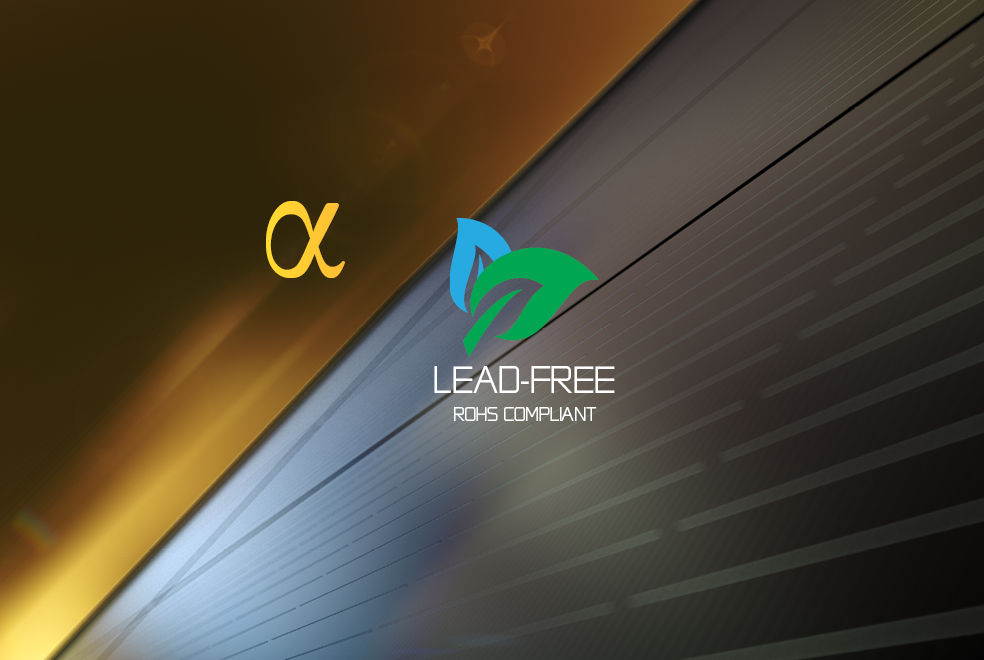
Responsible solar energy innovations for a more sustainable future: REC Group takes out the lead of its newest high-efficient Alpha Pure solar panels
The effects of climate change can be seen everywhere across the globe and solar energy is leading the change to combat greenhouse emissions and help lower our carbon footprint. With 126 GW of solar capacity installed globally alone in 2020, representing a growth rate of almost 22%,1, the solar industry plays a key role in the decarbonization of the energy sector. However, not all solar panels are created equal. When choosing solar technology for energy generation, the ‘lifetime sustainability’ of the solar panels installed should be considered, as well as a lifecycle analysis: how are the modules manufactured and at the end of life, how can they be recycled or repurposed. The issue: even today, a solar panel typically contains a small amount of lead in relation to its total weight.
The toxicity of lead to humans and animals has long been known. Lead released into the environment makes its way into the air, soils, ground water and also food. Once in the environment, it is hard to disperse. In the U.S. only e.g., 285,545 tons of lead was released or disposed in 2019.2
On a large scale, the impact by the solar industry is significant, particularly when solar panels are recycled at the end of their service life. To put this into perspective, last year alone, around 400 million solar panels were produced worldwide. If you fast forward a few decades into the future, the 2020 production is set to add around 10,000 tons of lead to the ecosystem.
The RoHS Directive ("Restriction of the Use of Certain Hazardous Substances in Electrical Equipment") limits the use of hazardous substances in all electrical and electronic equipment. Solar PV panels are exempt from this environmental regulation. With the increasing role of solar PV in the energy mix, even every small amount of this toxic material in solar panels is good to be questioned.
REC Group, an international pioneering solar technology brand with 25 years of experience in this industry, is now taking up this challenge. Since its foundation in Norway, REC Group has committed itself to a stricter and a more holistic understanding of sustainability across solar’s full value chain and end products. From manufacturing the world’s lowest carbon footprint silicon, the base material for solar panels, to silicon kerf upcycling innovations, REC is permanently seeking to minimize its own environmental footprint while improving efficiencies of their end products.
With the REC Alpha Pure Series, the high-efficient full black variant of its multiple-award-winning REC Alpha solar panels, the pioneering manufacturer is setting yet another example as an industry leader: the new module has eliminated lead from all panel components, including cell connections, cross connectors and junction box soldering, while providing customers with a higher power density of up to 219 watts per square meter. Not only does this mean that the product is significantly less harmful to the environment, but also that it is easier to dispose at the end of its working life with less impact to the ecosystem. Even without requirements by law, the new REC Alpha Pure Series complies with the RoHS Directive.
[[{"fid":"72111","view_mode":"original","fields":{"format":"original","field_file_video_caption[en][0][value]":"REC Alpha Pure solar panel: lead free + higher power density","field_file_video_description[en][0][value]":""},"link_text":"REC Alpha Pure solar panel: lead free + higher power density","type":"media","field_deltas":{"2":{"format":"original","field_file_video_caption[en][0][value]":"REC Alpha Pure solar panel: lead free + higher power density","field_file_video_description[en][0][value]":""}},"attributes":{"class":"media-element file-original","data-delta":"2"}}]]
“From a pure manufacturing and cost perspective, lead in soldering is making the production easier,” explains Shankar G. Sridhara, Chief Technology Officer at REC Group. “However, considering the impact to the society and environment, it should bother us all. Getting rid of lead in solar panels is worth to go the extra mile.” With the lead-free production and a substantial gain in power output, the new panel marks a major advancement in the solar energy industry and to a more sustainable future.
1 https://www.irena.org/-/media/Files/IRENA/Agency/Publication/2021/Apr/IRENA_RE_Capacity_Statistics_2021.pdf
2 https://www.epa.gov/trinationalanalysis/lead-releases-trend